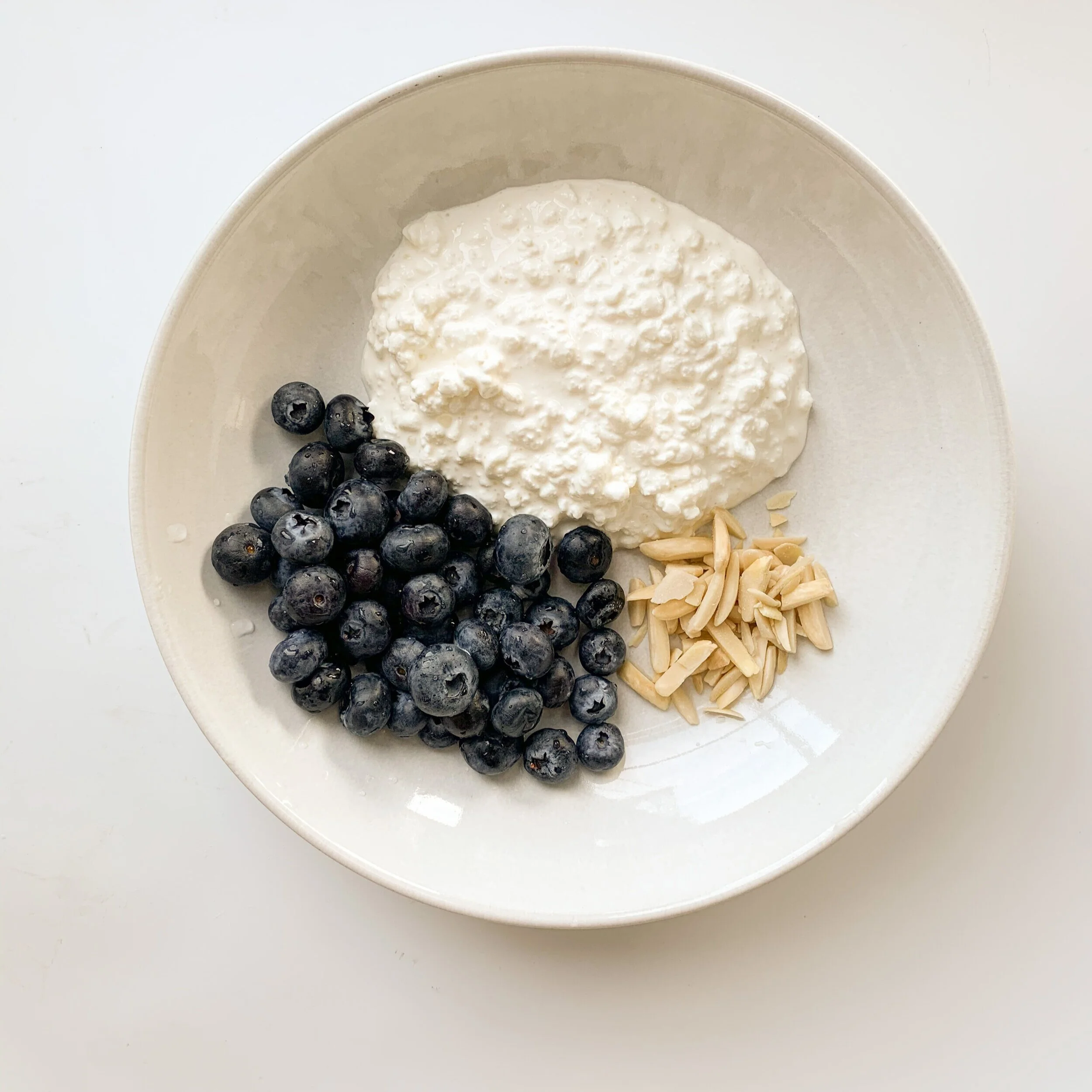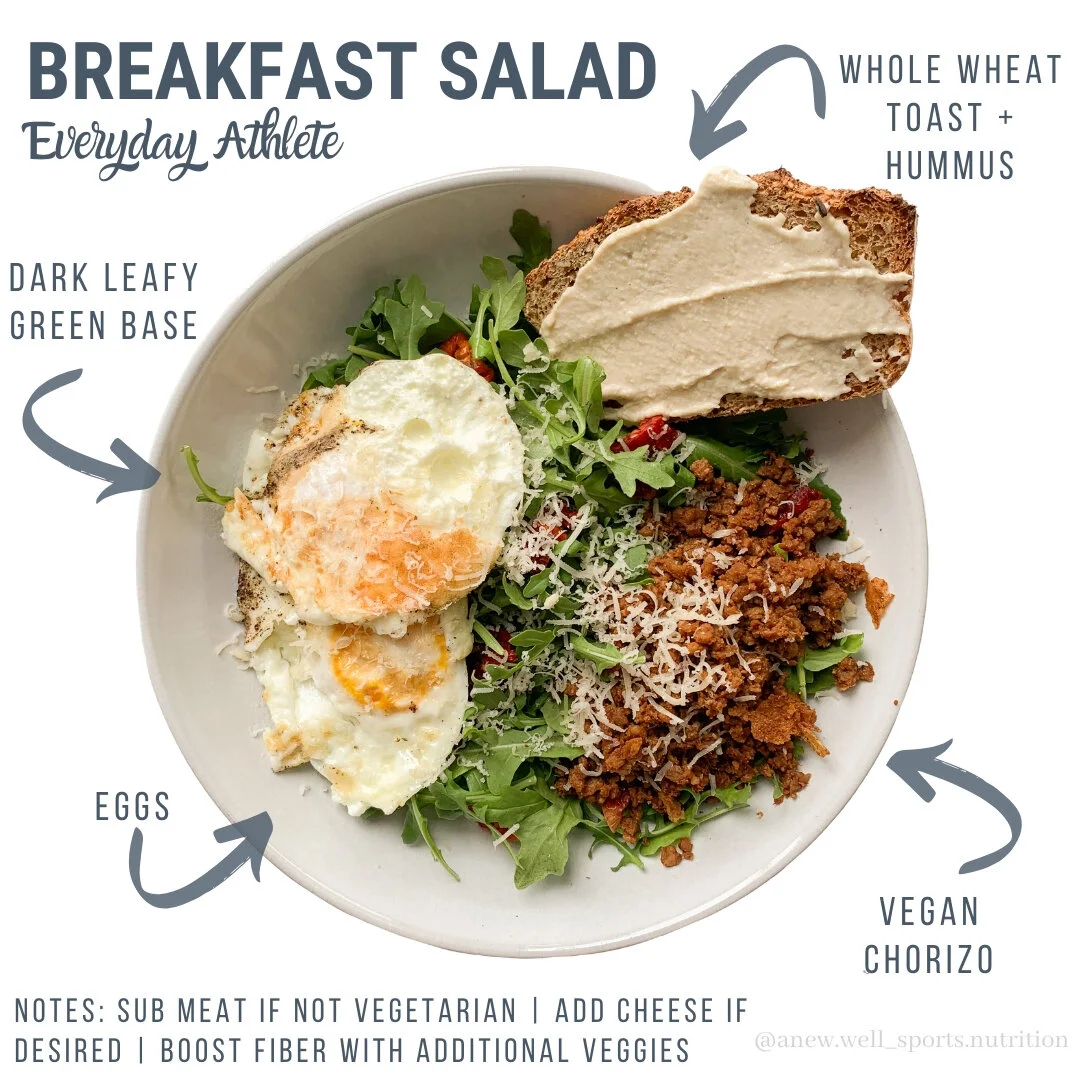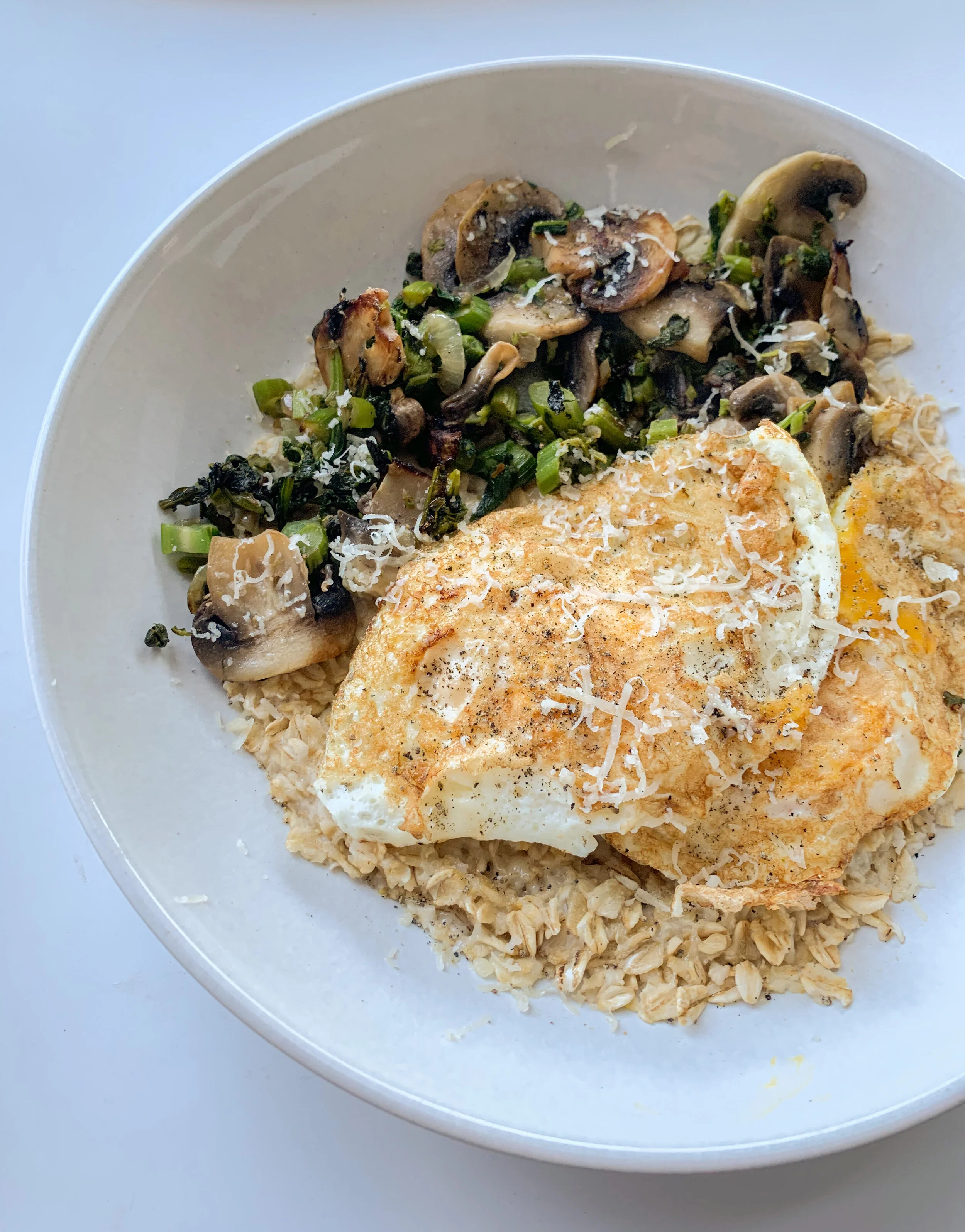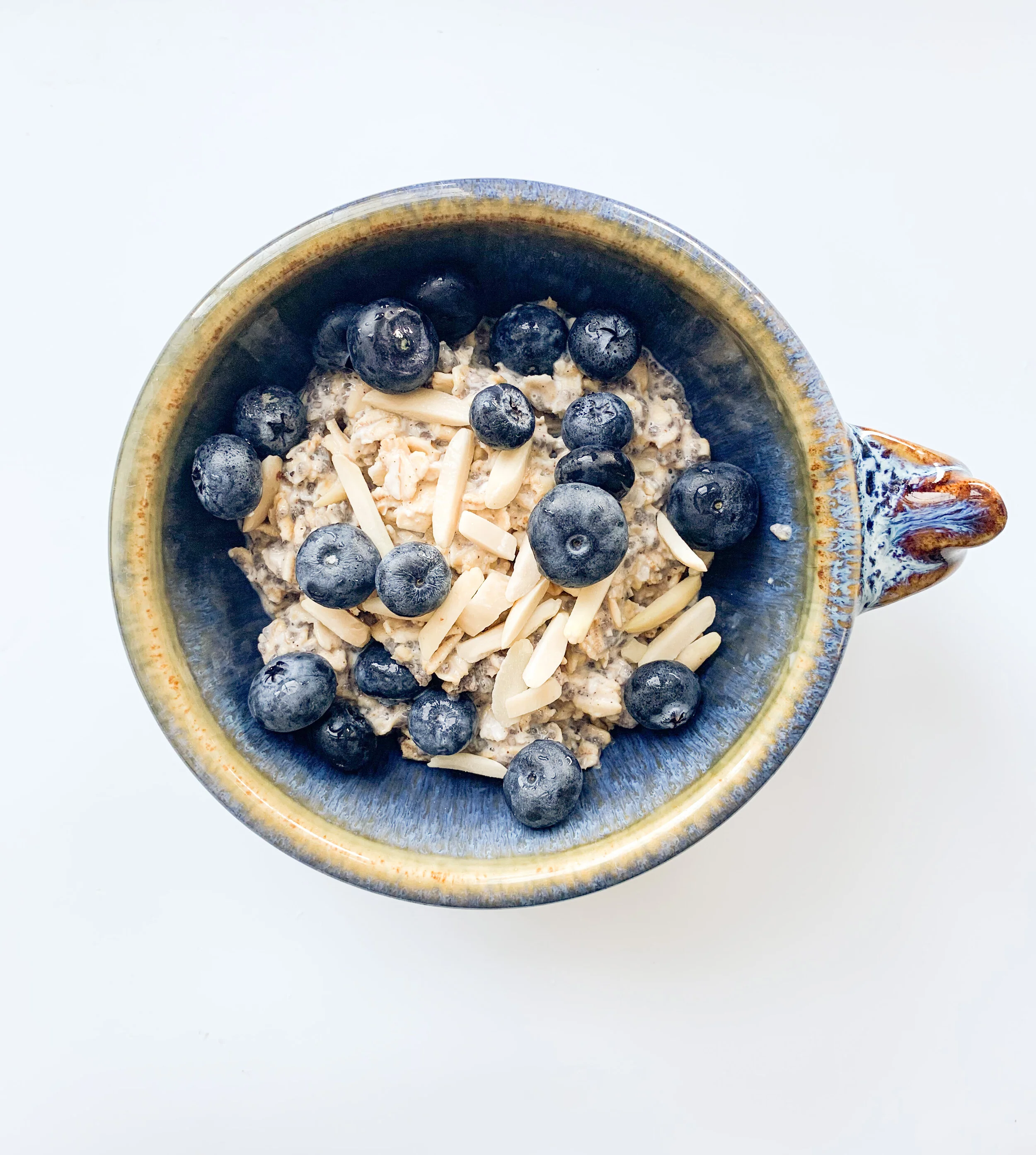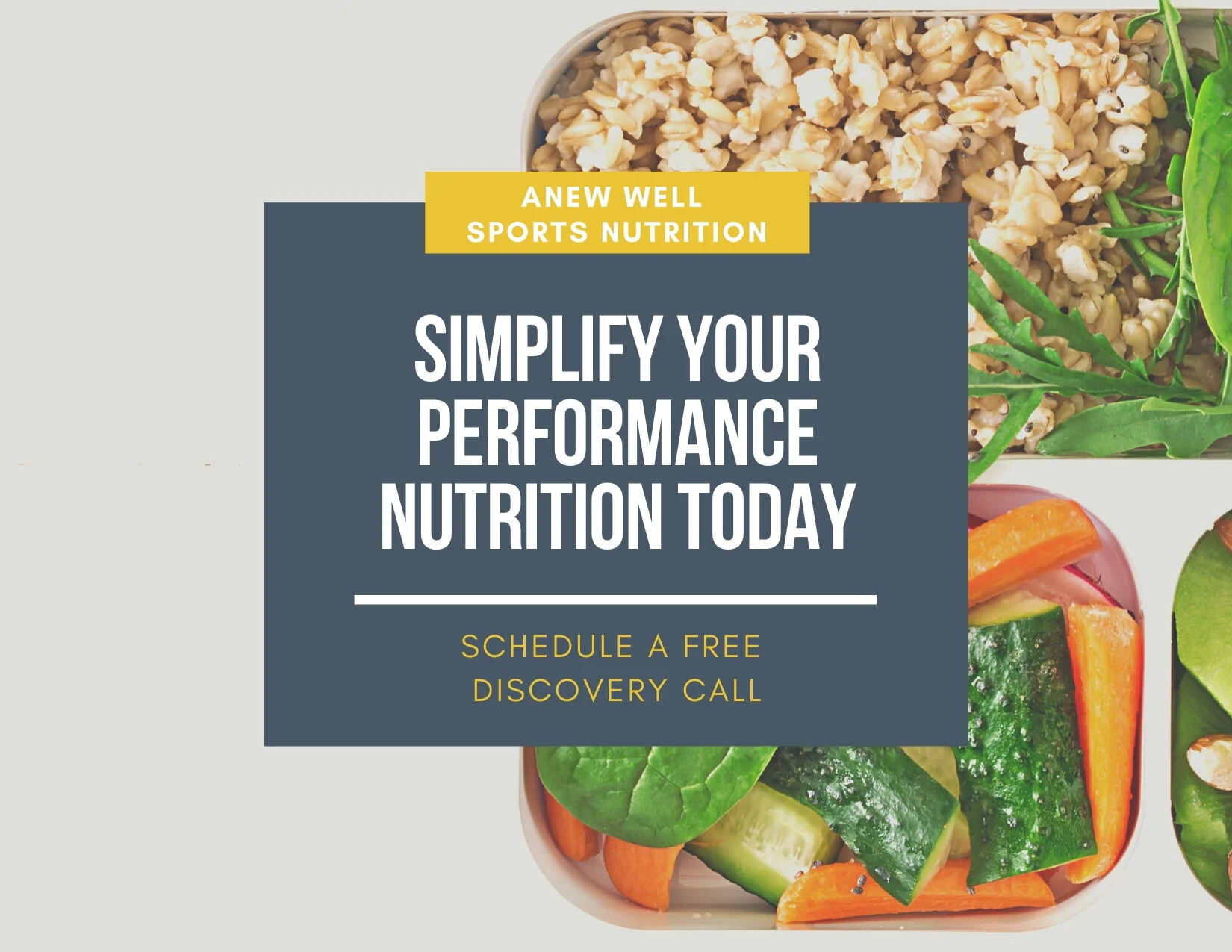How to Make a Filling Breakfast for Athletes
Breakfast for athletes doesn’t need to be complicated, but it must be filling and nutrient-dense to meet the needs of training, especially if increasing intensity in preparation for a race. By focusing on a combination of nutrient-dense foods, everyday athletes can ensure they’ll meet their energy and nutrient needs at the breakfast meal. These four simple steps will help you build a satisfying and filling breakfast.
Step 1: Choose a Protein
Aim for 20-30g protein per meal*
How to Add Protein at Breakfast
Protein is essential for multiple functions including building and repairing muscle. It’s important to space protein throughout the day to aid in muscle protein synthesis. This practice also plays a role in satiety which may help with weight maintenance over time. So often, the traditional breakfast meal is low in protein with quick options like pastries, sugary cereals, or toast with jam containing mostly refined carbohydrates. Choose from a variety of protein sources including plant-based proteins when possible. The chart to the right can help with increasing protein at breakfast using common breakfast foods.
*Protein needs are highly individualized. The general recommendation for protein is to eat between 1.2g/kg and 2.0g/kg body weight.
Step 2: Add Color
Aim for fruit or vegetables for 1/2 of the meal.
Why Should You Include Fruits and Vegetables at Breakfast?
Fruits and vegetables are an important source of many nutrients including fiber, essential vitamins and minerals, and phytochemicals (plant compounds that influence health beyond nutrition alone). They also have a high water content which contributes to daily hydration needs. This is especially important for athletes who might struggle to maintain hydration status while also meeting energy needs. Adding vegetables and fruits and breakfast can help to increase the volume of food which may contribute to satiety.
Step 3: Add a Carb
Stick to whole grains, starchy vegetables, and/or beans to meet carbohydrate needs at breakfast.
Breakfast Carbohydrates
Breakfast carbohydrates don’t have to come from traditional sources like cereal. Expand your options to include whole grains and starchy vegetables or beans. This might mean turning the previous night’s grain into a breakfast bowl or adding leftover beans to a breakfast burrito. Carbohydrates are an important source of energy for everyday athletes. They’re the primary fuel source for working muscles during exercise. As training intensifies, carbohydrate needs also increase to ensure glycogen can be replaced for use in future training sessions. For athletes, carbohydrate needs can range from 3g/kg/day to 10g/kg/day with lower intensity training requiring fewer carbohydrates and higher intensity training requiring great quantities of carbohydrates. Individual needs will vary, but aiming for between 45% and 65% of total calorie intake from carbohydrates will meet the needs of the majority of the population.
Sources of Carbohydrates at Breakfast
Whole grains (oats, quinoa, barley, whole grain breakfast cereal)
Starchy vegetables (potato, sweet potato, pumpkin)
Beans (pinto beans, black beans, garbanzo beans)
Step 4: Add a Fat
Fats are essential for the absorption of some nutrients.
Everyday Athletes Need Dietary Fat
If you still think low-fat is the way to go, think again. Instead of restricting all fat, think type of fat and make swaps to ensure the majority of fat in the diet comes from unsaturated sources. Most people can meet their needs for dietary fat intake with approximately 20% to 35% of total calories coming from fat. Focus primarily on unsaturated fat sources such as those found in fatty fish, nuts and seeds, and plant oils like olive or avocado oil. Other fat sources, particularly from saturated fat, should be limited according to individual needs. (The Dietary Guidelines for Americans recommends 10% of total calories from saturated fat.)
Sources of Fat at Breakfast
Nuts and seeds and nut/seed butter (almonds, walnuts, chia seeds, hemp hearts)
Avocado
Low-fat or full-fat dairy like yogurt, cottage cheese, cheese, milk (Note: dairy contains saturated fat)
Fatty fish (smoked or grilled salmon, tuna, halibut)
Breakfast meats (Note: breakfast meats are often highly processed and contain a significant amount of saturated fat.)

